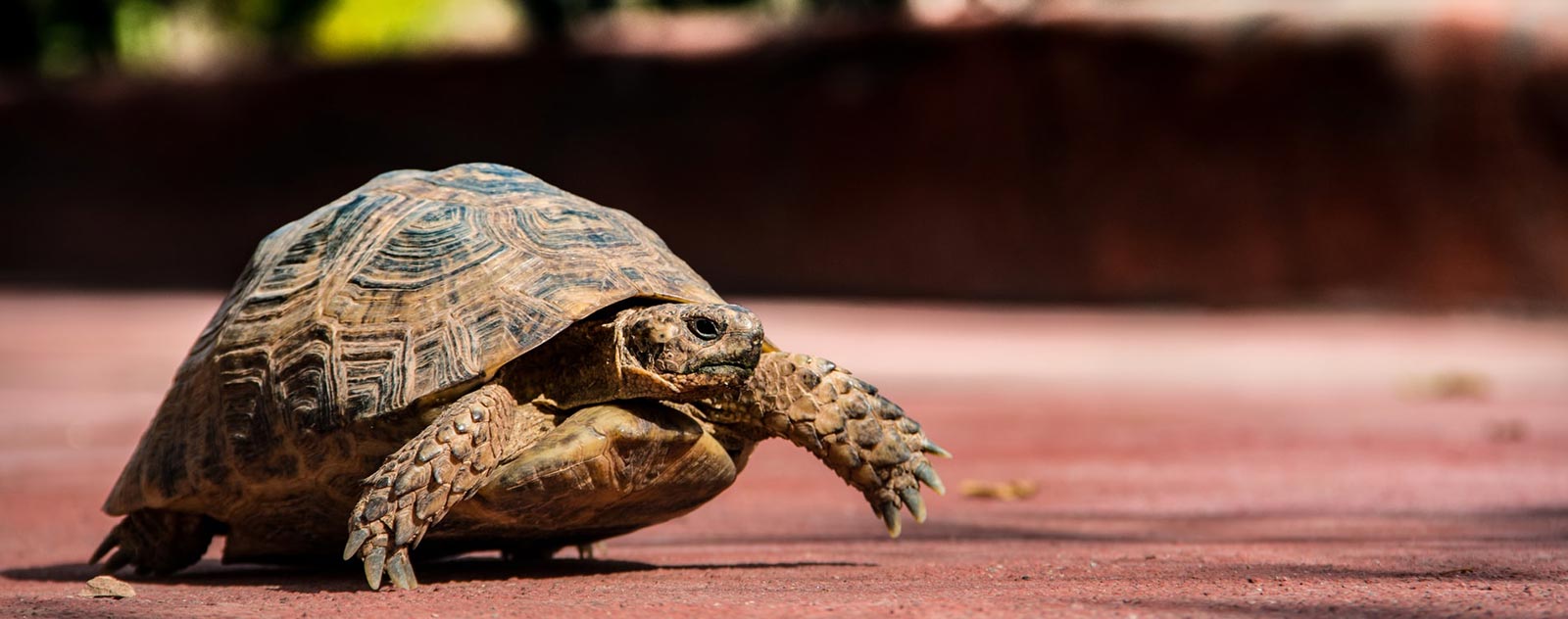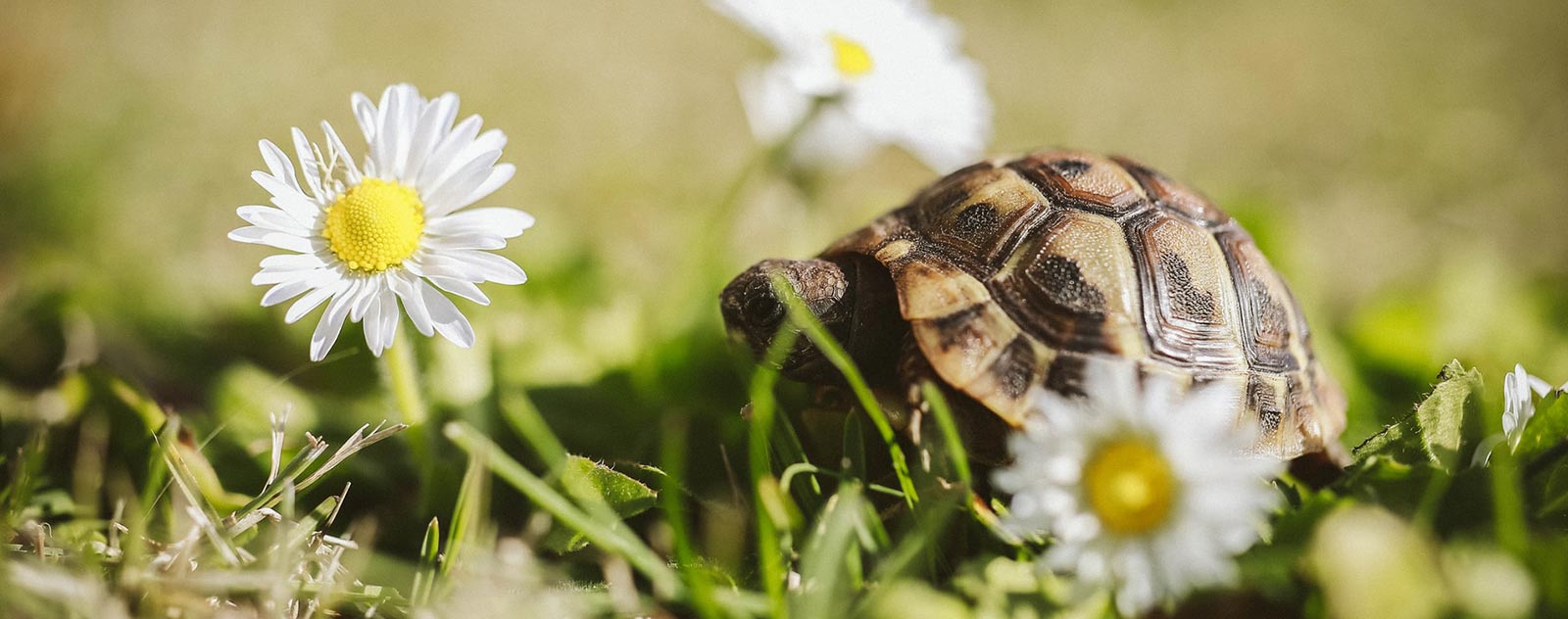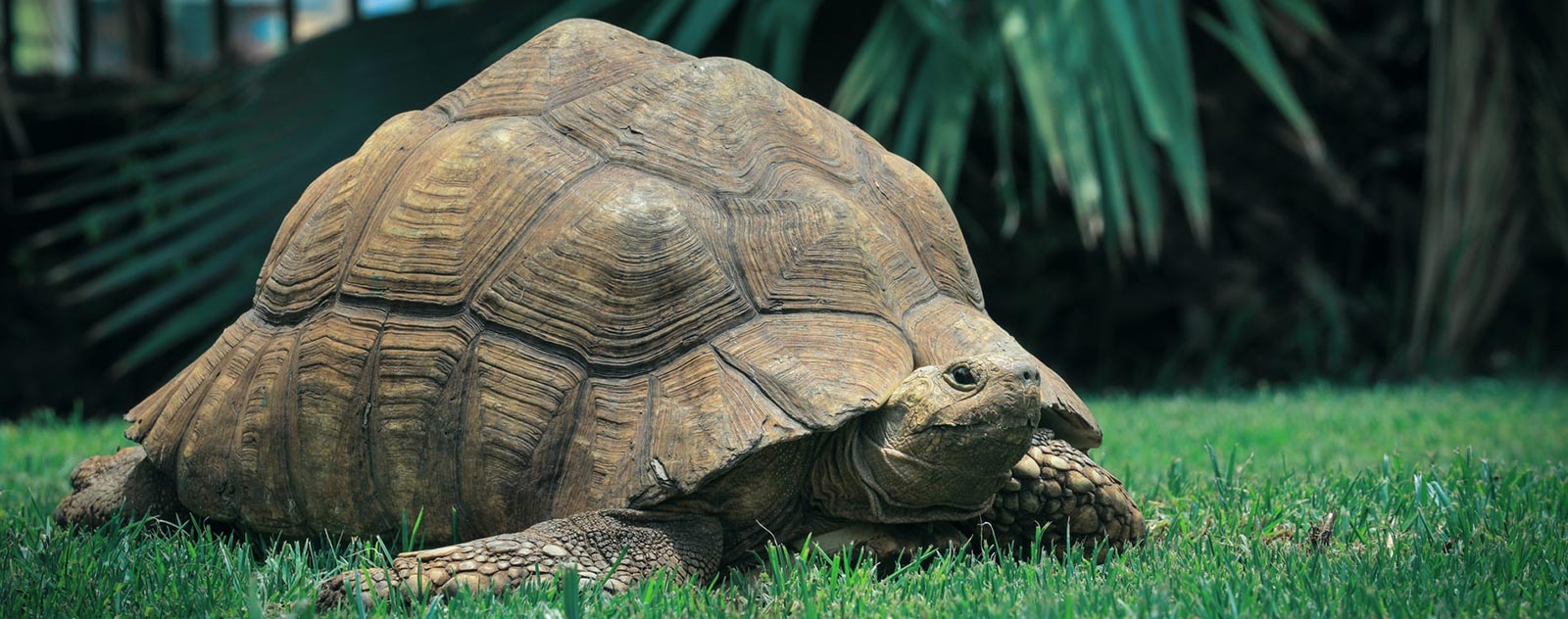
Is the turtle a lucky charm?
Are you planning to adopt a turtle? Are you curious about what it represents in different cultures?
We have looked into the question and have some answers.
The turtle, this lucky species, is known for its slowness and longevity. However, in some cultures, although not often a favorite, it has some special symbolism.
In this article we present to you the symbolism of the turtle in cultures:
- In the West
- Among certain peoples of the Americas
- In Asia
- In Africa
- In Polynesian culture
- In Celtic beliefs
- In the Christian faith
Let's get to the heart of the matter!
The turtle is a reptile with a shell

The first characteristic feature of turtles is undoubtedly their shell . They are made of bones, cartilage, and scales and welded to the animal's skeleton by bony plates. Then comes their longevity. Turtles are in fact capable of living up to 50 years on average. The largest specimens reach the age of 100.
There are three major groups of turtles, in which 342 species are distributed:
-
Land turtles , which spend their entire lives on land.
-
Sea turtles that live in the oceans
-
Aquatic turtles , which are a cross between land and sea turtles and live near bodies of water.
Symbol of the turtle in the West
In the West, the tortoise is generally associated with slowness . This is the case in La Fontaine's fable "The Hare and the Tortoise." The tortoise also appears as an allegory of slowness through expressions such as "to be slow as a tortoise."

Turtle symbol in America
In Native American culture, the turtle is closely associated with creation myths and the universe. Native Americans believe the turtle was responsible for the creation of the world. According to one creation myth , the earth was formed from a mound of mud placed on a turtle's shell.
The turtle, stable on its four legs, would then have the function of carrying the world . Elsewhere, among the Algonquins the turtle represents the world above and below us. The dome of its shell is identified with that of the celestial vault and its plastron with the earth beneath our feet.
It is also a totem associated with the creation of the world. The South American Mayan people associated the turtle with constellations and stars . They also attributed to it the symbol of the alliance of water and earth. Its shell was used in many rites. It was also used as an instrument depending on the context.
In the Mayan community

In Mayan culture, the turtle is associated with the symbol of water and earth . It is also linked to the deity Pauahtun who is said to have carried the world on his shoulders with a turtle shell on his head.
The god of corn, Ahmun, is often depicted emerging from a shell . The shell is also often associated with noise and thunder. It is therefore not uncommon to see it used as a musical instrument during certain spiritual rites.
Turtle symbol in Asian culture
The turtle is widely used as an allegorical figure of the world in Asian culture. As with the Algonquin, the turtle 's shell represents the heavens and the earth.
The turtle in Chinese culture

In Chinese culture, the turtle supports the earth on its back. It is therefore not uncommon to see the turtle used as a pillar in Chinese temples and monuments. The Chinese also believe that the turtle helped the god Pangu create the world. The body of a turtle contains the secrets of heaven and earth .
This is why, during the reign of the Shang Dynasty, during ritual ceremonies, the future was predicted through turtle shells. Emperor Yu, in Chinese mythology, is said to have used a turtle shell to separate the demons within himself into nine parts.
Its symbol in Feng Shui art

In Feng Shui art, the turtle has a powerful symbolism. It is one of the four celestial animals that protect the world. Along with the guardian dragon of the east, the phoenix of the south, and the unicorn of the north, the turtle contributes to the balance of energies. The turtle is also the only sacred animal that remains of these.
This persistence makes it a symbol of resilience and tenacity. The turtle's longevity is also associated with good health and protection against negative energies . Used as an amulet or as a pet, it brings wealth, happiness and prosperity in studies or business.
The turtle in Japanese culture
In Japanese culture, the turtle is a symbol of longevity, wisdom, and luck. It plays the role of protagonist in many legends. One Japanese myth tells of four sacred turtles whose mission is to protect the city of Kyoto.
One of them, the Black Turtle or Gen-bu , which protects the city from the north, has a half-snake, half-turtle appearance. Another legend associates the turtle with happiness and luck. It tells of a couple of lovers who transformed themselves into a turtle and a stork in order to achieve immortality.
The meaning of turtle in India

The turtle occupies an important place in Indian beliefs. Here again, the earth (and the sea) are said to rest on the back of a turtle named Akapura. A giant turtle named Kurma is considered to be one of the many reincarnations of the god Vishnu, giving it a divine symbol.
Indians even dedicate temples to it. In India, too, the turtle symbolizes the world. In an ancient religious text, it is said that the world would be the body of the king of turtles ( Kurmaraja ): "The earth is its breastplate, the atmosphere its body, and the vault of the heavens its shell."
Meaning of the turtle in Africa

Africa associates the turtle with the symbol of fertility , and makes it embody the woman. In tales the turtle is often described as the wisest and most intelligent animal. It uses its cunning to easily get out of every situation.
It also has artistic value . Particularly in Egypt where the presence of turtles in frescoes has been noted, as well as numerous fossils. The turtle is also a protective figure.
It is said to possess the power to ward off evil. Archaeological excavations have established this fact by unearthing numerous amulets and vases bearing the image of the reptile.
Symbolism of the turtle in Polynesia

The Polynesian turtle was used as a personification of the god Tu, the god of war. Thus, warriors often wore turtle tattoos and drawings before battles. It symbolized strength and protection.
In Hawaiian culture, the turtle is a guide . According to legend, it was a turtle named Honu who led the first Polynesians to the Hawaiian Islands. Some myths also speak of the turtle's protective aspect.
Like that of the Kailua turtle who would change into a woman in order to watch over children playing on the beach. Finally, the fact that the turtle always returns to its birthplace is seen as a sign of luck and fidelity .
Symbolism in Celtic culture
The sea turtle is able to sense vibrations through water. Among the Celts, this was seen as a great survival skill. The animal is also the guardian of the gates that lead to the fairy world.

Symbolism in Christian Culture
According to biblical principles, the turtle is a symbol of peace and patience. The Bible teaches virtues, among which tolerance and wisdom are vital factors. Whatever project you have in mind, being patient will allow you to pay attention to details. Rushing isn't always the best thing to do. Turtles are also symbols of longevity .
A slow metabolism allows them to live a long time. Longevity is seen in Christianity as a blessing, like the one God granted to Enoch and Elijah. Fertility is also seen as a grace. In the Bible, God grants barren women the ability to conceive and bear children. The turtle is a great example of fertility. This is evident in the impressive number of eggs it can lay.
Our store is getting closer to you

You have just learned that the turtle is attributed various symbols and interpretations. These symbols vary from one culture to another. It is often associated with the world and its creation and is sometimes given divine status. Here, it symbolizes stability and protection.
There, it represents luck, it attracts wealth and prosperity, it brings happiness. Elsewhere it is a guide. Protection, health, fertility, intelligence, wisdom, luck, femininity. The turtle is associated with many positive symbols and signs .
Our store showcases turtle keychains. We invite you to discover them by clicking on the image below:

